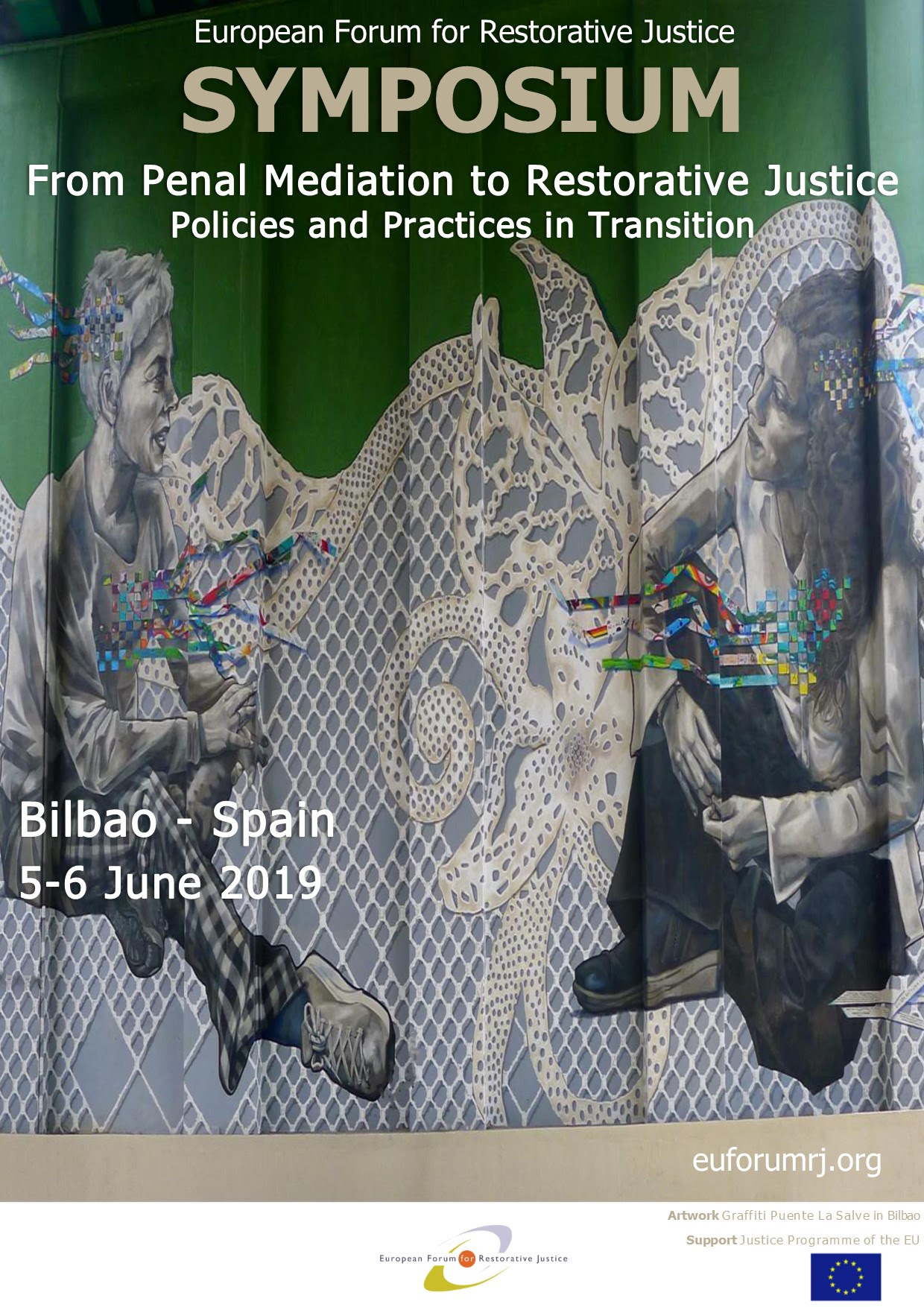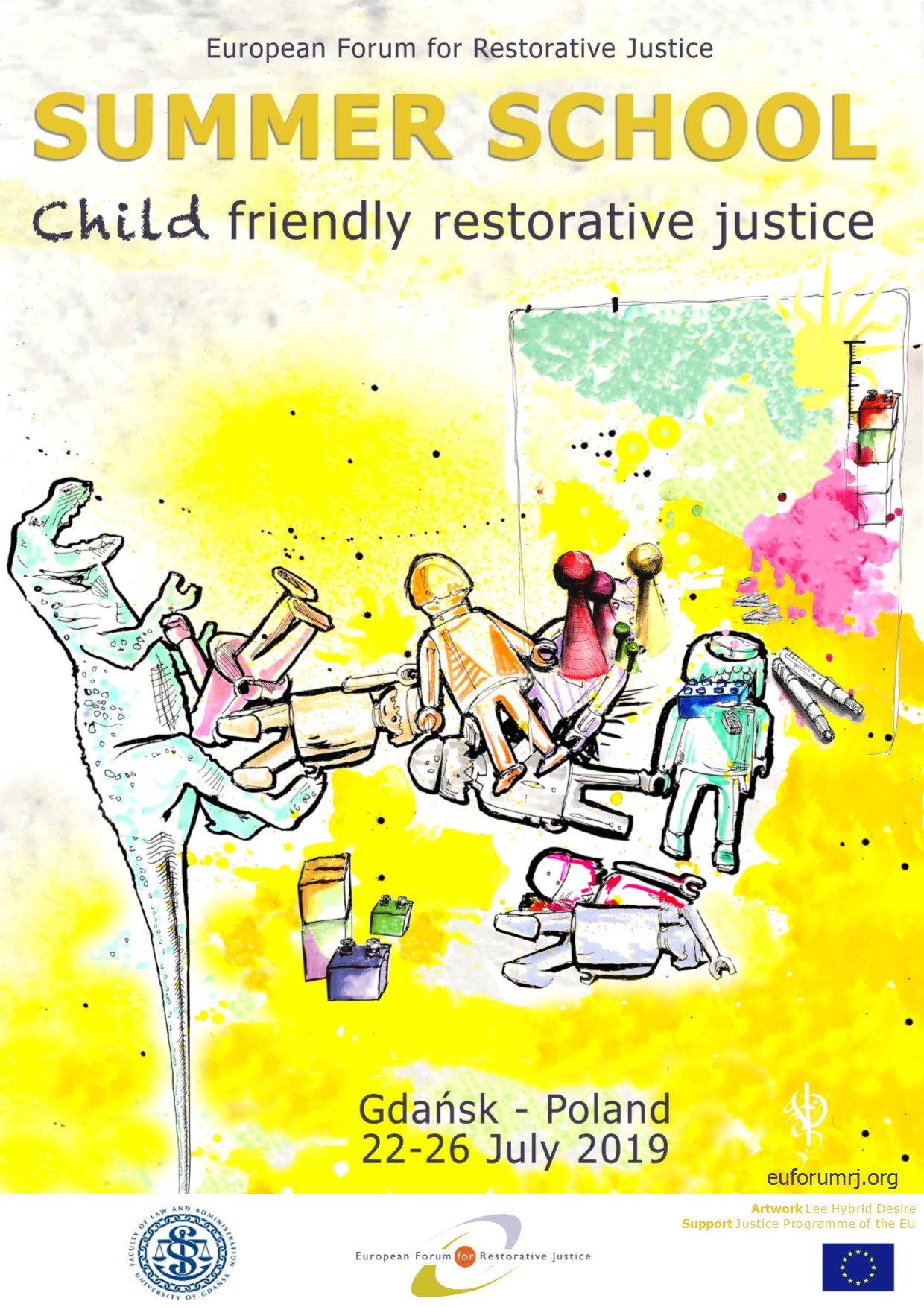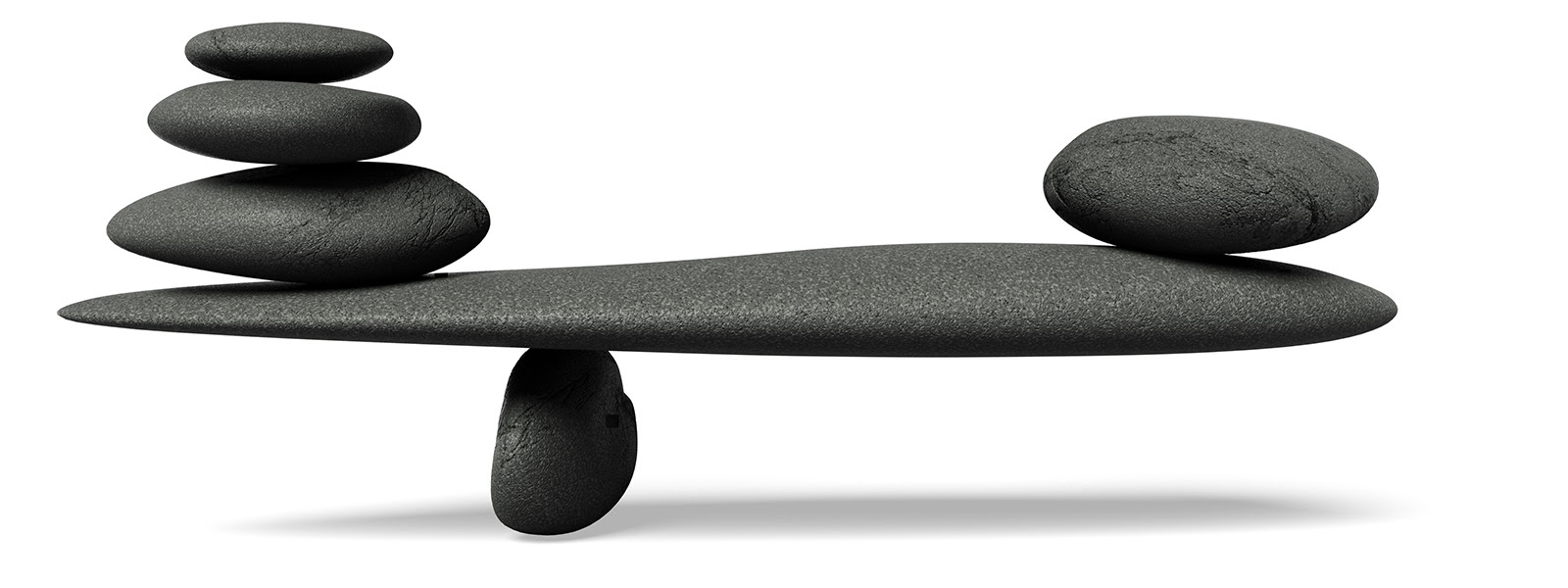|
|
|
|
|
|

We hope you enjoy the current edition. If you have any comments or any news you would like us to share, please let us know: newsflash@euforumrj.org.
If you want to let others know about this newsflash, please forward it to your friends or colleagues and invite them to sign up on the EFRJ website!
If you missed the previous editions, click here! |
|
|
|
|
|
|
|
|
| EFRJ Symposium Bilbao 2019 |
 |
|
The draft program of the international RJ Symposium in Biblao (5-6 June) is online! The coming weeks we will announce the speakers on our social media: follow us with #efrj2019. The Symposium includes several interactive and dialogue sessions for exchanging on the new Council of Europe Recommendation on RJ in criminal justice matters. If you wish to contribute to the program, you cansend your proposal before 12 April. The registration is also open. The EFRJ membership will meet for its Annual General Meeting the evening of 4 June. |
|
|
|
|
|
|
|
 |
|
| Criminal Justice Summer Course |
|
|
|
|
|
|
|
|
|
| EFRJ Summer School Gdańsk 2019 |
 |
|
For the Summer School 2019 we welcome you in Gdańsk, Poland, on 22-26 July! The theme is “Child-friendly Restorative Justice”, with a focus on both young victims and offenders. Last week, the EFRJ met the trainers Bie Vanseveren (Belgium) and Belinda Hopkins (UK) in Leuven and it promises to become a very inspiring and interactive week. Make sure you register soon, because there are only few seats left. |
|
|
|
|
|
|
|
| Video: RJ and the juvenile justice system in Belgium |
| This video (in French) is about RJ and the juvenile justice system in Belgium: how does this form of complementary or alternative justice find its place in the judicial landscape of minors? The film was made within the framework of the EU funded project“AWAY”, coordinated by DCI Belgium, for promoting RJ for children in conflict with the law in Belgium, Hungary, Bulgaria, Romania and Croatia. |
|
|
|
|
|
|
| CEPEJ document on mediation |
| The European Commission for the Efficiency of Justice (CEPEJ) published a document on mediation: the Mediation Development Toolkit – Ensuring implementation of the CEPEJ Guidelines on mediation. The Mediation Development Toolkit is a dynamic set of tools, meant to provide a framework which member states and mediation stakeholders can adapt to their specific needs and situations. The document includes penal mediation, with many practical recommendations on mediator training. |
|
|
 |
|
 |
|
|
 |
|
| Book: Violence, Restorative Justice and Forgiveness |
 |
|
| The book ”Violence, Restorative Justice and Forgiveness”, by Marilyn Armour and Mark Umbreit (2018), is the outcome of a major research project based on interviews with victims who participated in Victim Offender Dialogue. It shows how RJ dialogue works and highlights the role of forgiveness within it. |
|
|
|
|
|
|
| IIRP Europe conference |
| The IIRP Europe conference will take place in Kortrijk (Belgium) on 15-17 May 2019. Among the speakers, the EFRJ chair Tim Chapman will talk about “Activating Community: A Restorative Response to Intercultural Conflict” and Borbála Fellegi (founder and director of our member Foresee Research Group, and winner of the European RJ award in 2018) will talk about “A Prelude to Resilience: Rebuilding Trust in Fragmented Communities”. On this occasion you can also meet Board member Patrizia Patrizi presenting on Restorative Cities. |
|
|
|
|
|
|
| Intensive course on restorative practices |
| Our chair Tim Chapman is one of the team leaders providing the two part intensive course “Foundation Skills in Restorative Practices” (University of Strathclyde, 20-21 May and 10-12 June 2019). Participants will learn the skills required to facilitate restorative conferences and circles, including training in the engagement and preparation of people harmed and people responsible for harm. |
|
|
 |
|
 |
|
|
|
| Moment of inspiration |
|

|
|
TedxKakuma Champ was the first TEDx event hosted in a refugee camp. It offers a different lens into the reality of life as a refugee, away from the images of devastation and suffering, and towards stories of resilience, of contribution, of creativity. Current and former Kakuma Camp refugees tell stories that uplift and inspire. The theme, “Thrive”, supports the belief that empowered refugees can shape a peaceful and tolerant future of our world.
|
|
|
|
|
|
|
|
|
|
|














